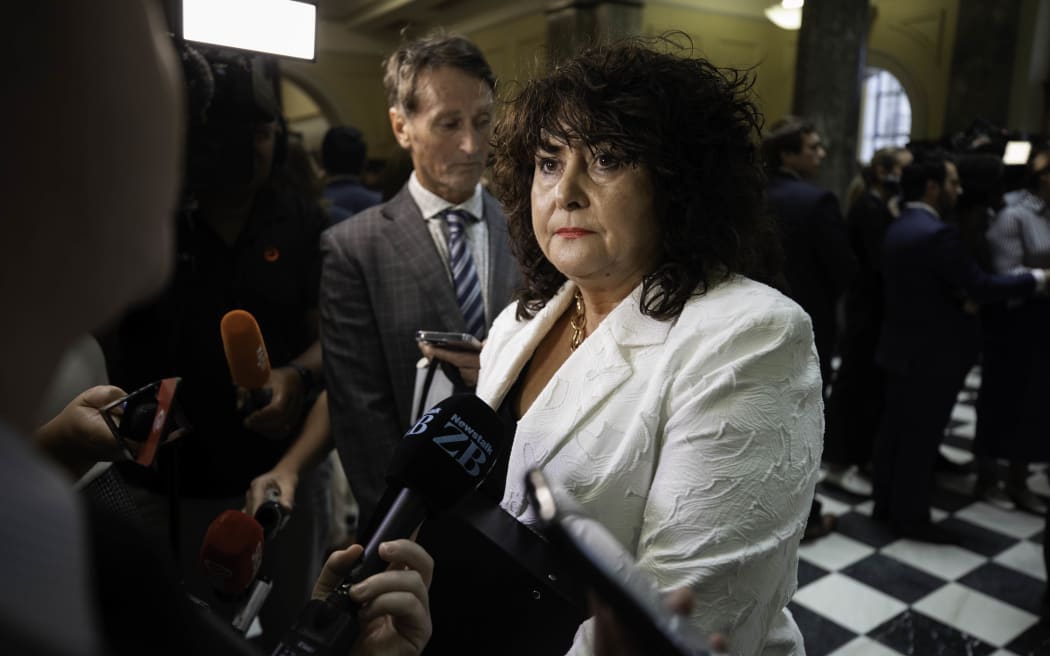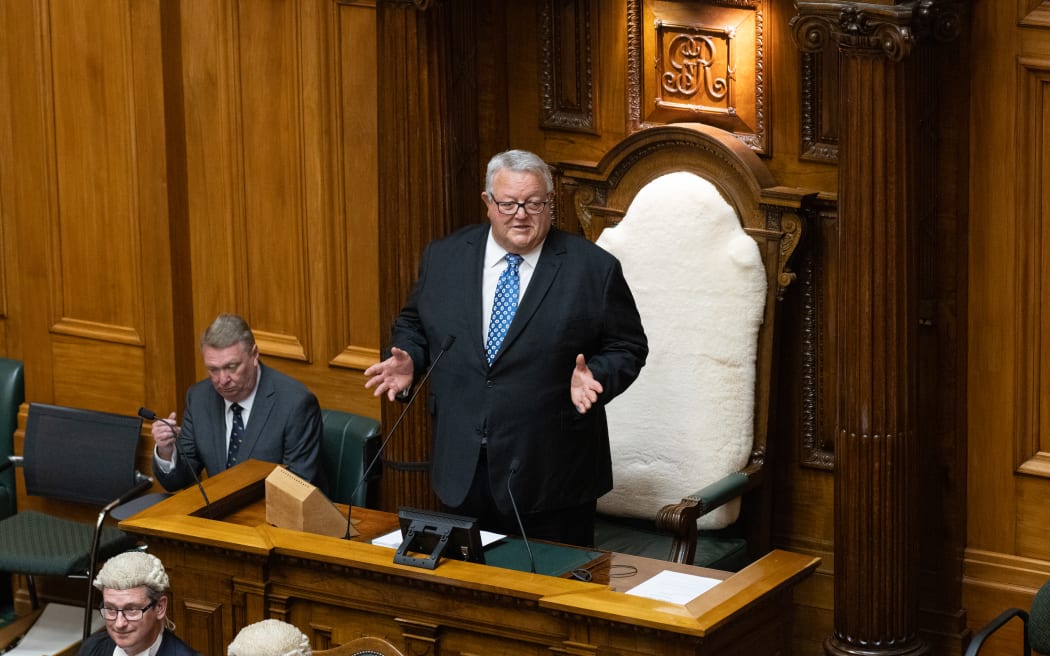
Photo: RNZ / Angus Dreaver
MPs in Parliament’s debating chamber go hard and they go early. Even MPs who would blanche at that phrase would admit some of the most interesting things happen early and quickly.
For example, Tuesday began with fleeting acknowledgement of a visiting US senator, and before beginning debates, MPs agreed which of them will be on The Intelligence and Security Committee and privy to the world of secret squirrels.
But even more interesting was an underwhelming apology.
An ersatz apology
Before Question Time began New Zealand First’s Casey Costello (Associate Health Minister – Smokefree Policy), got in early to ‘correct’ an answer before Question Time compounded her woe.
“I'd like to make a personal statement regarding my answers as Associate Minister of Health to oral questions on 30 January 2024. I'm speaking specifically to the questions that asked if I was being truthful when I denied to the media that I had requested advice on freezing tobacco excise tax. On review of my response, I acknowledge that there is confusion arising from my understanding of the differentiation between seeking specific advice and accepting advice being offered. I had no intention of misleading the House, and I apologise for any confusion.”
Quite a few ministers have corrected answers this Parliament. Going hard and early by owning up to a mistake is a wise move. Attempting to brash it out is just asking for trouble. Costello is pretty tardy comparatively, and may have forgotten about the correction part.
The wisest approach is to say ‘sorry, I got it wrong’, but often ministers veer off dramatically before admitting to an actual error. In Ms Costello’s case the heart of the equivocation was…
“I acknowledge that there is confusion arising from my understanding of the differentiation…”
The Leader of the Opposition, Chris Hipkins was not satisfied and raised a point of order.
Hipkins: “Generally speaking, when a Minister is correcting an answer they have given, they state what the incorrect answer was and what the correct answer was. I don't think anyone in this House would be any the wiser as to exactly what it is the Minister's just corrected.”
The Speaker, Gerry Brownlee responded.
Brownlee: “Well, that's not quite true, because I'm very wise on these things and right up with it, as it happens. And if you think back to the way in which an earlier apology was given in this House for a matter that was potentially a matter of privilege—and we still don't know where this ends up—then you would see that a similar course of action was taken with no objection.”
I suspect he was referring to the Jan Tinetti situation from the last Parliament. She also made a correction quite late and ended up before the Privileges Committee.
Hipkins: “I recall the questions asked quite clearly. The Minister was repeatedly asked whether she had requested advice and she repeatedly said no. Is her correction now saying that she did ask for that advice? If so, she should say that.”
Brownlee: “I don't believe that is what has just been said, but I'll obviously have to read it when it comes out in Hansard. I do know what the complaint was and I do know what the response was, and, clearly, this is still a matter under consideration.”

Gerry Brownlee in the Speakers chair during the Commission Opening of Parliament. Photo: VNP / Phil Smith
Did he just reveal a matter of privilege?
While Casey Costello’s answer left me none-the-wiser, the Speaker’s responses to Chris Hipkins were unusually informative. He appeared to intimate that a complaint has been with him that Costello has breached Parliament’s code of privilege – and that he is considering that complaint. Complaints are unusual, revealing them more so. The very existence of a complaint is not usually acknowledged, until and unless it is accepted as a matter of privilege by the Speaker and referred to the Privileges Committee – who are like an internal tribunal of senior MPs that very rarely hears evidence about possibly naughty MPs.
If a complaint has been made we may discover more about it – if and when it is referred. Until then nobody is likely to comment. Previous Speakers have ruled that revealing the existence of a complaint in the House is itself naughty. Lockwood Smith (when he was Speaker) indicated that the complainant raising the existence of a complaint with the media might make him less likely to refer it.
The person being complained about is also wise to keep shtum, and not dig their hole deeper. They might though, decide to apologise to pre-empt or blunt a referral. Ms Costello’s timing was certainly fortuitous, if half-hearted.
She would not usually be expected to be aware of a complaint. Previous speakers have ruled that it is not for the Speaker to make the accused aware as it is not the Speaker’s role to establish facts, though the complainant can inform the accused if they wish.
Only the Speaker will know whether Tuesday’s equivocal correction made a referral more or less likely.
For the record the Intelligence and Security Committee members will be the Prime Minister (Christopher Luxon), Leader of the Opposition (Chris Hipkins), and Deputy Prime Minister (Winston Peters). Also Priyanca Radhakrishnan and Teanau Tuiono (nominated by the Leader of the Opposition); plus Brooke van Velden (ACT), and Judith Collins (nominated by the Prime Minister).
The House also agreed rules for that committee.


